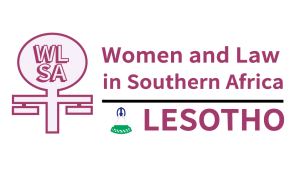With support from the Ford Foundation, WLSA is implementing a project titled “strengthen women’s voices and participation in natural resource governance in Southern Africa focusing on Mozambique, Zimbabwe, Lesotho, and Zambia “. The goal of the project is to ensure Women organizations, rural women, and artisanal miners in Zimbabwe, Zambia, Lesotho, and Mozambique, have strengthened voices to meaningfully participate, defend their rights, and benefit from mutually violence-free, gender-responsive, accountable, and inclusive natural resources governance sector.
The majority of women in SADC live in rural areas and are dependent on access to natural resources for agriculture production as a basis for livelihoods. While women produce around 80percentt of the food in Africa, they own only one percent of the land. This has had far-reaching livelihoods implications for Africa.
The situation is currently being exacerbated by the expansion of an environmentally and socially destructive agro-industrial and extractives industry system that, amongst other manifestations, shows itself in large-scale land grabs. This is happening in the context of other pressures such as climate changes and food price volatility. While land grabs and other land issues have been taken up for years in the region this has tended to be done by NGOs and academics in specialized lobbying fora, there has been too little opportunity and space for rural women in poverty directly affected by these issues to speak out for themselves, to organize and shape their destinies. Women across the continent are organizing themselves to resist the loss of their land, initiative projects to get greater land rights, and are often and the forefront of community resistance to land grabs. These local struggles have often happened in isolation with little support despite the fact that the issues women face are so similar across the region and the continent. Despite all the local and some national activities and some victories, the injustice of limited land and related rights for women and the poverty this contributes to remaining. The recent large-scale discovery of valuable extractive resources – oil, gas, and minerals – and Southern Africa presents great potential for shared economic growth and could drastically reduce poverty levels in these countries. However, if the extractive industry (EI) sector is not managed transparently and equitably, there are risks of severe negative consequences. For example,
Entrenched gender bias is not only preventing women from engaging with and accessing the economic benefits of natural resources such as land and extractive industries, but is manifesting through gender-blind policies and practices in community consultation and decision-making processes which give rise to the systematic exclusion of women and silencing of women’s perspectives, agendas, and interests in relation to land and EI projects.
The result is increasing gender inequality and the further disempowerment of women and human rights infringements. For example, as land is expropriated for EI and other projects, women’s livelihoods and food security are put in jeopardy. Risks of HIV and AIDS and violence against women and girls can escalate with the influx of transient workers, the transition to a cash economy, and the emergence of new socioeconomic stresses. Furthermore, as vital resources like water and wood become scarcer, and water becomes more polluted, women and girls’ unpaid care work can increase dramatically. Women remain the predominant actors in the informal and communal economies in SADC – an acceptable indication that women still act as the primary shock absorbers of the various crises, at the micro and the macro level.
In addition, the criminalization of the Artisanal and Small Scale Miners in the region increases the vulnerability of the poor especially and conflicts are rife in these countries. The miners are vulnerable to arrests, diseases, and other health risks, safety, and other trade-related exploitation due to a lack of knowledge and poor access to information. They are always at loggerheads with large-scale scale mining companies over the use of land and resources.
There is a substantial amount of international policies promoting implementation, gender equality and women empowerment in SADC through policy, legislative reforms, and development programs. These include the Convention on the Elimination of All Forms of Discrimination Against Women (CEDAW 1979), the International Conference on Population and Development (1994), Beijing Declaration and Platform for Action (1995), Sustainable Development Goals (2016), the Maputo Plan of Action (1996) and the Protocol on Gender. However, the realization of these instruments is still far from ideal. Implementation challenges, patriarchal systems (and attitudes), poor resourcing and integration of relevant policies into existing practices remain huge obstacles to the achievement of set targets. It is therefore unsurprising that in natural resources governance where women are deemed a minority and are, often, not at the center of socio-economic transformative changes, public policies, legislation, and programmes.
WLSA is identifying and strengthening rural women, women artisanal miners, and women in mining, their associations, networks, or organized group and strengthening their capacities in organizing, influencing public policies, private company policies, and legislations that negatively impact their land and mining to enhance their livelihood.
